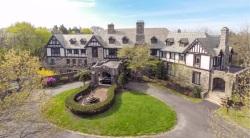
As many guardians of gifted children know, all schools are not created equal. While it is valuable for our children to learn to socially navigate the mundane world, the critical years of early education provide a lasting framework through which our children learn to either embrace their gifts, or learn to suppress them for the sake of conformance. Due to the excessive demands on most public schools to provide mass education to a broad population, the intellectual and artistic potential of our gifted children can often go unnoticed, unfostered – and unappreciated – within the system.
As a remedy for this problem, many parents of gifted children seek out schools which are specially designed to recognize and encourage the true potential of their students. When deciding on the best school for your gifted child, there are many options. Several states now support home and charter school programs, some of which will provide the additional support of group activities and financing of special interest curriculum. For the thrifty parent, these two options may provide the best alternative to public schooling. For parents of means, private schools – such as Montessori education programs – may provide the best course.
In any case, evaluating the educational program for viability as it pertains to sufficient support for your gifted child is imperative. The following are some aspects to explore while ensuring that your gifted and talented school of choice meets both your expectations, and your child’s needs.
Fosters Creativity and Curiosity
There is a famous quote which highlights the importance of encouraging – and not stifling – the gifted child’s flow of creativity. As a young child, the famous painter, Benjamin West, decided to sketch a portrait of his sister. Not having access to a canvas, West decided to use the wall of the family home for his artwork. When his mother came in and discovered that her walls were drawn upon, her reaction was priceless. Instead of scolding West, she kissed him, and praised him for his great talent. West is quoted as saying, “My mother’s kiss made me a painter.”
How would West have turned out to be, had he been reprimanded for exercising his early gift? Thankfully, we will never know. What we can note, however, is that our gifted children need to have the opportunity to freely express themselves in ways that are not always conventional. When choosing a gifted and talented school for your child, ensure that the program is designed to recognize this vital need, and to provide the conditions of flexibility that will allow for creativity to shine.
Provides a Stimulating Curriculum
A common complaint of gifted children is that they are bored and frustrated with the public school curriculum. Educational systems which promote rote learning; repetitive action; and busy-work are the bane of gifted existence. As Einstein is quoted as saying, “Education is what remains after one has forgotten what one has learned in school.”
The negative frustration which occurs as a result of inapplicable curriculum can be transmuted into positive responses under the right, educational, conditions. A gifted child longs to be challenged, but in a way that will result in tangible, applicable, gains in knowledge and expertise. A proper gifted and talented school will understand the necessity of providing the student with curriculum which both sparks interest, and results in the student’s satisfaction in acquiring the skills presented. Applicable curriculum for the gifted child will include that which encourages self-discovery; problem solving; and invention of new ideas. Exceptional programs will design fundamental curriculum in a way that speaks to the child’s particular areas of interest, such as through couching history lessons in the context of scientific advancement, or through implementing mathematical studies through art analysis.
Embraces Various Learning Styles
A notable – and welcome – progression in our western culture is the growing acknowledgment that students learn differently. Some may best retain knowledge when it is received audibly. Others may absorb knowledge only when it is written or read. Yet others may need to participate in hands-on projects to best exercise their cognitive abilities. Public educational systems have been encouraged to incorporate learning style strategies for decades.
A quality educational program will be aware of these differences in learning styles, and will have developed approaches toward accommodating individual learners in these ways. When inquiring into your gifted and talented school of choice, ask about how the school implements curriculum designed for the various styles, and ensure that the learning style of your child is a good match.
Of course, making sure that you are armed with the information about how your child best learns is a prerequisite to this investigation. Learning style assessments abound on the internet. If you are in need of determining your child’s learning style, do a search, and find a reputable one that best applies to your child’s age and grade level.
Adept Student Support, Faculty and Staff
As wonderful as the philosophy and curriculum of a school may be, it is the support staff which ensure that the application is effective. In the case of homeschooling, the caretaker may be taking on this role. With charter schools, this person is often considered a liaison or a homeroom teacher. In private schools, your child will often be directed by multiple mentors.
Yet another frustration of many gifted students is the experience of understanding more about a subject than their own teachers do. While it may not be necessary to be as knowledgeable as the student in a specific topic, it is imperative that the teacher allow for the self-motivated student to progress beyond the teacher’s own level of understanding. In a quality gifted and talented school, the support staff will be humble enough to concede to the gifted child’s ability to process and assimilate information quickly, while simultaneously being prepared to facilitate next-level opportunities for learning.
Some things to look for when determining the training level of the staff employed at your school of choice are proficient include making note of communication efficiency; presence – or absence – of organizational skills; evidence of forethought in instruction implementation; and an ability to respond appropriately to unique situations.






